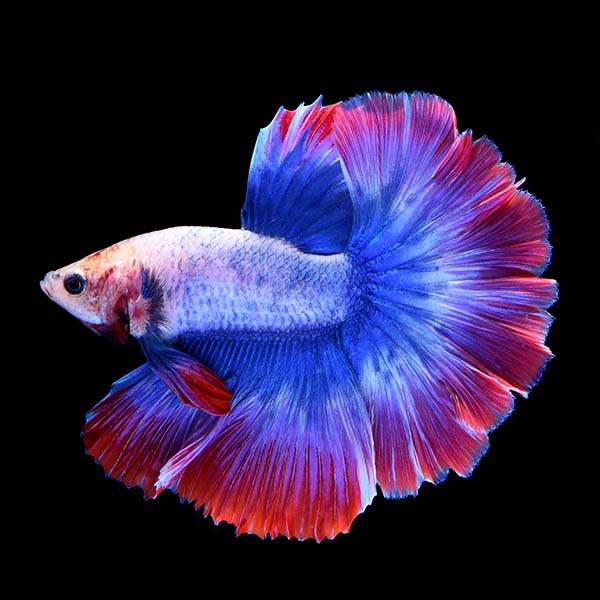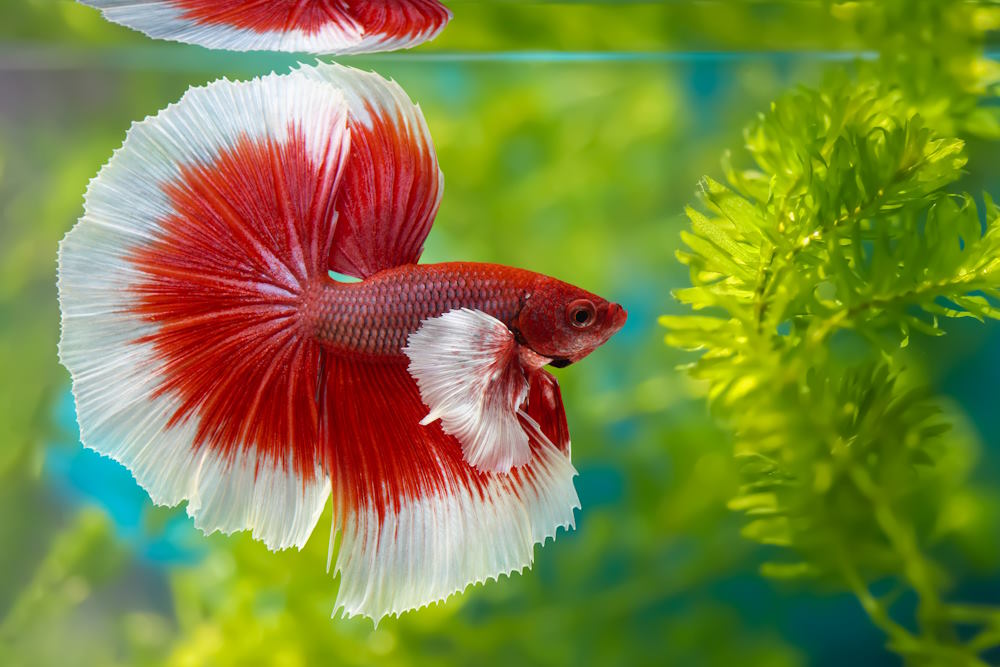Exactly how to Choose the Right Betta Fish for Your Aquarium
Exactly how to Choose the Right Betta Fish for Your Aquarium
Blog Article
Everything About Betta Fish: Comprehending Their Unique Needs, Habits, and the most effective Practices for Optimum Care
Comprehending the one-of-a-kind demands and actions of Betta fish is important for any type of aquarist looking to offer optimum treatment. betta fish. As we explore these elements further, the implications for both beginner and skilled fish keepers end up being progressively evident, increasing questions regarding exactly how finest to fit these exceptional fish in our homes.
Betta Fish Introduction
Although usually appreciated for their dynamic shades and streaming fins, Betta fish, clinically understood as Betta splendens, are complicated creatures that require specific like thrive. Stemming from Southeast Asia, these freshwater fish are recognized for their territorial nature and unique behaviors. Betta fish show sex-related dimorphism, with men showing much more vibrant colors and longer fins than ladies.
Their aggressive tendencies, particularly among men, demand cautious consideration when housing them. Bettas are frequently maintained in single-specimen containers to avoid territorial conflicts. They can coexist quietly with certain suitable types in bigger neighborhood tanks, offered the environment satisfies their needs.

To guarantee ideal treatment, aquarists need to recognize their unique behavioral qualities, nutritional demands, and environment needs. betta fish. With proper attention, Betta fish can exhibit their vibrant personalities and thrive in a well-kept fish tank setup
All-natural Environment and Atmosphere
Betta fish flourish in a varied series of natural environments, largely located in the shallow waters of Southeast Asia, including rice paddies, swamps, and slow-moving streams. These environments are identified by warm temperatures, usually between 75 ° F and 82 ° F(24 ° C and 28 ° C ), and a pH degree ranging from 6.5 to 7.5, which is perfect for their health and wellness and well-being.
In their all-natural environments, Betta fish are accustomed to dense plant life, supplying both shelter and reproducing grounds. The presence of plants such as floating water lilies and thick grasses not just provides protection from killers but additionally adds to the oxygenation of the water, which is important for their respiratory requirements. In addition, these atmospheres frequently have locations of still water, enabling Betta fish to show their natural behaviors such as bubble nesting.
Comprehending the natural environment of Betta fish is essential for fish tank lovers. Replicating these problems-- through water temperature level, pH equilibrium, and the addition of real-time plants-- can substantially enhance the general wellness and durability of these captivating fish, guaranteeing they prosper in a home aquarium setting.
Social Actions and Interactions
Comprehending the social actions and interactions of Betta fish is necessary for successful aquarium monitoring. Betta fish, or Siamese fighting fish, are understood for their one-of-a-kind behavioral characteristics, identified primarily by territoriality and hostility. Males, specifically, display extremely hostile actions towards one another, causing the infamous reputation of Betta fish as competitors. In a restricted area, 2 men can participate in violent fights, usually resulting in injury or death.
On the other hand, women Bettas exhibit much less aggressive behavior and can exist side-by-side in groups, understood as sororities, if introduced effectively. It that site is crucial to check their communications closely, as power structure and prominence can lead to disputes. Comprehending the dynamics within a Betta community is vital; developing concealing spots and guaranteeing enough room can alleviate hostility.
Additionally, Betta fish might additionally show curiosity and social actions in the direction of other varieties. While they can exist side-by-side with particular non-aggressive storage tank mates, it is vital to pick compatible species to stay clear of tension and aggression. On the whole, recognizing these social interactions is essential to fostering an unified aquarium setting for Betta fish.
Necessary Care Standards
Supplying proper treatment for Betta fish is critical to their health and wellness and health. To make sure a thriving setting, it is important to keep ideal water problems. The water temperature must be maintained in between 76 ° F and 82 ° F(24 ° C to 28 ° C), while pH levels need to range from 6.5 to 7.5. Normal water changes-- about 25% weekly-- assistance keep water quality.
Betta fish require an ideal container size; a minimum of 5 gallons is suggested to give adequate area for swimming and hiding. Consist of decors and plants to create a stimulating environment, however stay clear of sharp objects that could hurt their fragile fins.

Last but not least, make sure the storage tank is furnished with a filter to keep the water clean, yet make use of a gentle filter to avoid strong currents that can emphasize the fish. By following these necessary treatment guidelines, owners can promote a healthy and balanced and vivid Betta fish.
Common Health Issues and Solutions
In the treatment of Betta fish, awareness of typical health concerns is important for keeping their well-being. To deal with fin rot, improve water problems and consider making use of a broad-spectrum antibiotic.
Another usual disorder is ich, a parasitic Get More Information infection defined by white places on the fish's body (betta fish). Therapy includes boosting water temperature and look at here now including aquarium salt to the container, as this can help remove the parasite
Swim bladder condition is additionally frequently observed, causing buoyancy problems. This condition may occur from overfeeding or irregularity. A fasting period of 24-48 hours, followed by a diet plan of blanched peas, can offer relief.
Lastly, bettas might experience velour illness, indicated by a gold dust-like look on their skin. Therapy commonly requires medication especially developed for outside parasites, along with enhanced tank health.
Normal tracking of water specifications, keeping a tidy setting, and offering a balanced diet regimen are essential safety nets. By dealing with these health and wellness problems immediately, Betta fish can lead much healthier, a lot more dynamic lives.
Conclusion
In recap, effective betta fish care requires an understanding of their unique demands and habits. Regular surveillance of health and wellness and water quality, along with a well balanced diet plan, contributes to the long life and vibrancy of betta fish.
Report this page